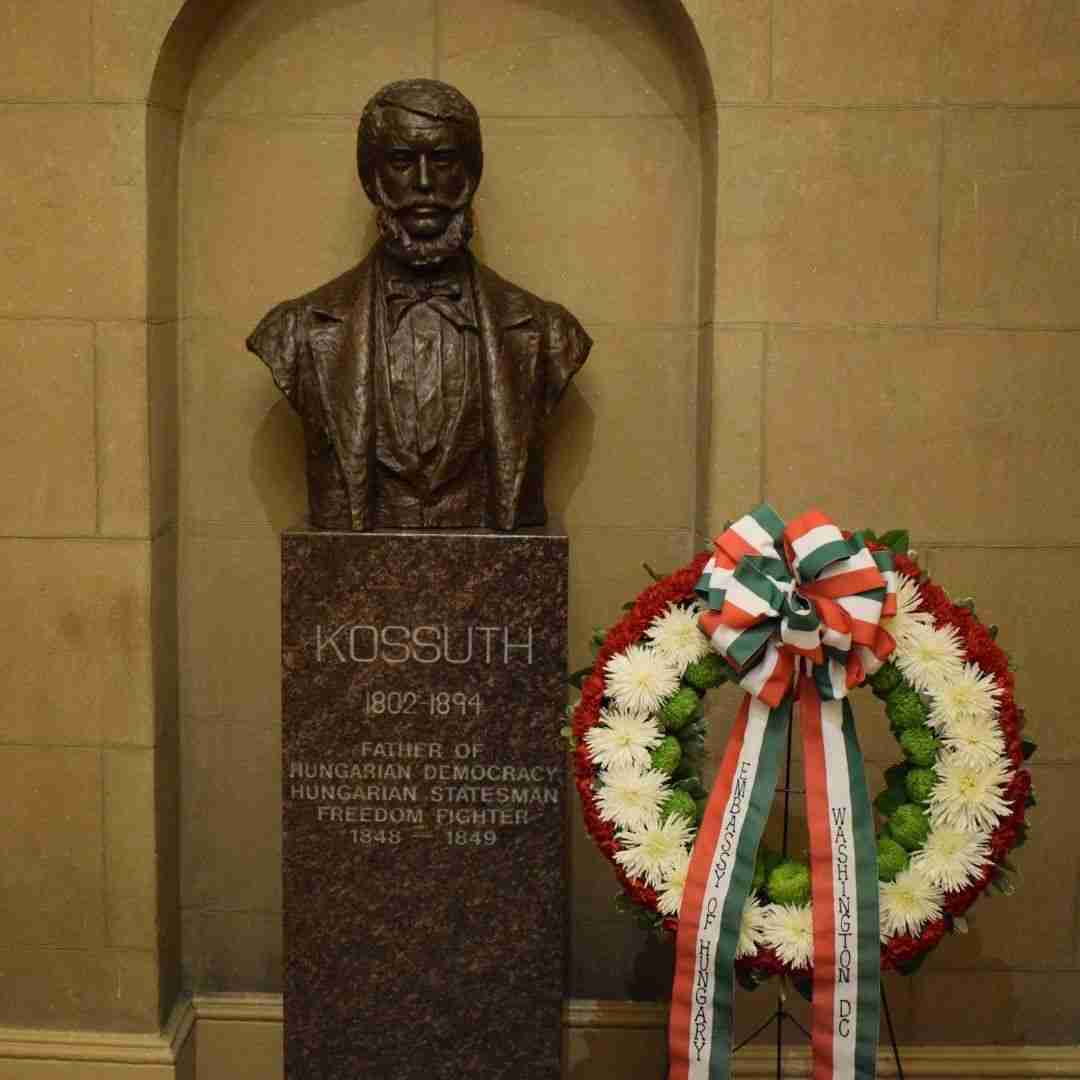The 1848-49 Revolution and War of Independence is one of the most decisive events in Hungary's modern history and a cornerstone of national identity. With its social reforms, it was the initiator of civil transformation and was the sole uprising in the European revolutionary wave of 1848 to successfully transform into a military rebellion.
The civil revolution triumphed in Pest on 15 March 1848. The “youth of March” printed Sándor Petőfi's poem National Song and the Twelve Points of the Hungarian Revolutionaries, the framework for the modern, civil Hungarian nation, declaring an end to all forms of censorship. A large rally was held at the National Museum, and then the crowd of 10,000 marched to the Pest City Council and persuaded the members of the council to join their demands. A revolutionary committee was formed, and the crowd marched on to Buda to get their demands met by the Council of the Royal Governor and to free the political prisoner Mihály Táncsics.
The success of the revolutionary events, and of the War of Independence that began in the summer of 1848, is best demonstrated by the fact that the Habsburgs were only able to defeat the Hungarian army with the military intervention of the Russian Empire.
Lajos Kossuth, the governor of Hungary and a central figure in the War of Independence, fled to the Ottoman Empire after the disarmament. On the last day of 1851, he and his companions were received by US President Millard Fillmore. Five days later the Hungarian guests were welcomed by the Senate, and on 7 January by both houses of Congress. The Washington celebration was followed by a seven and a half month national tour, during which Kossuth was admitted to the local Masonic Lodge in Cincinnati on 19 February 1852. These journeys provided him with the means to renew enthusiasm for Hungary and ensured that the world did not forget the country’s struggle for independence, which had been made a crown province of Austria in the aftermath of the revolution.

Kossuth’s bust is one of only two honoring non-Americans in the Capitol. The base reads, "Louis Kossuth, Father of Hungarian Democracy."
Kossuth's powerful English and American speeches so impressed and touched the famous contemporary American orator Daniel Webster, that he wrote a book about Kossuth's life. He was widely honored during his lifetime, including in Great Britain and the United States, as a freedom fighter and bellwether of democracy in Europe. As the influential contemporary American journalist Horace Greeley said of Kossuth: "Among the orators, patriots, statesmen, exiles, he has, living or dead, no superior."
"The spirit of our age is Democracy. All for the people and all by the people. Nothing about the people, without the people. That is Democracy, and that is the ruling tendency of the spirit of our age." - Louis Kossuth, spoken before the Ohio State Legislature, February 16, 1852, more than a decade before Lincoln's Gettysburg Address.
The War of Independence of 1848-49 is perhaps the most famous war conflict in the history of Hungary. In the video below, which includes photographs and drawings from the period, Bálint Varga recites Sándor Petőfi's poem National Song in English, translated by George Szirtes.
